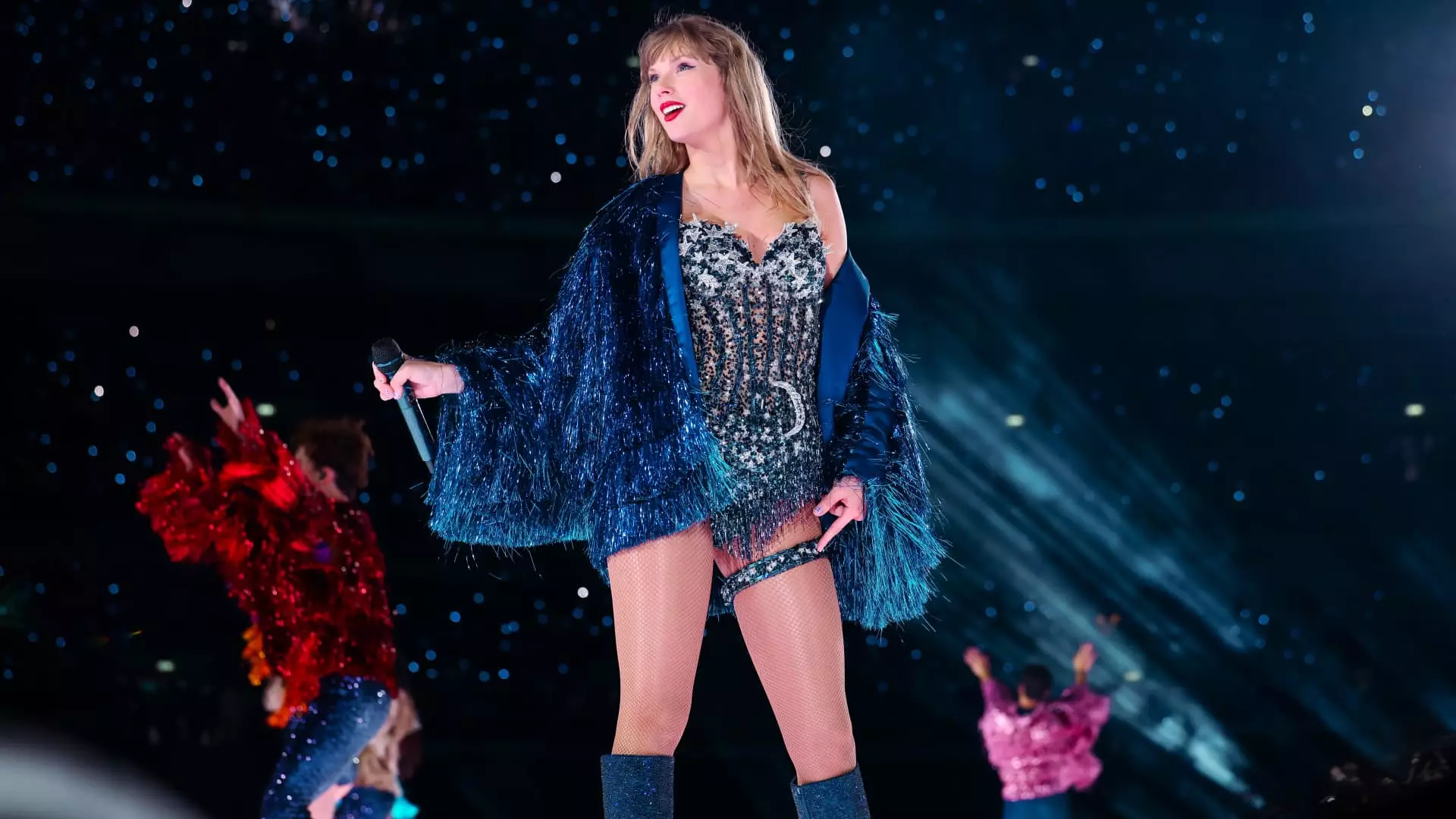In a politically charged climate, the recent confrontation between former President Donald Trump and pop icon Taylor Swift illuminated the powerful intersection between celebrity culture and electoral politics. Trump’s outburst against Swift on his social media platform, Truth Social, following her endorsement of Vice President Kamala Harris, exemplifies how personal rivalries have permeated the political discourse in recent years. Fueled by Swift’s declaration that Harris represents “steady hands” in a chaotic political environment, Trump’s vehement reaction reveals much about his sensitivity to public opinion and celebrity endorsements.
The fact that Swift labeled herself a “childless cat lady” in her endorsement—taking a jab at Republican commentary regarding women in politics—further complicated the exchange. Such remarks reflect not only the personal stakes involved but the broader societal commentary on gender and leadership roles, complicating the narrative for audiences on both sides of the aisle. Trump’s emotional response appears to stem from a mix of jealousy and frustration, implying that a celebrity’s voice can significantly sway public perception.
The effectiveness of celebrity endorsements in political races is an ongoing debate. Swift’s notable influence has been on display as her endorsement led to over 300,000 visits to Vote.gov, a clear demonstration that she can mobilize audiences around critical issues. However, while celebrity endorsements can create significant visibility, their long-term impact on electoral outcomes remains uncertain.
In an environment where electorate opinions are often swayed by entertainment figures, the nuanced connection between celebrity support and voter behavior raises questions about the authenticity of such endorsements. Are fans of Swift genuinely inclined to change their political preferences based solely on her support for a candidate, or is it merely performative? The political landscape is complicated by these relationships, and as the landscape evolves, this type of endorsement will continue to play a role, albeit with nuanced effects.
The response from the Harris-Walz campaign illustrates how deeply intertwined politics and pop culture have become. Campaign spokesperson Sarafina Chitika cleverly wove Swift’s lyrics into their messaging, exemplifying how music and politics can be funneled together to resonate in a culturally rich manner. By referencing Swift’s work, they not only humanized the campaign but created a dialogue that could appeal to younger voters who may feel disillusioned by traditional political rhetoric.
More importantly, the ability of campaigns to adapt and absorb cultural phenomena like those created by Swift showcases the evolving nature of political strategy. The background of such cultural clashes may seem trivial but reveals crucial insights into the ways political campaigns must operate in the modern age, striking delicate balances between serious policy discussions and more lighthearted, relatable exchanges that appeal to the electorate.
As we stand on the cusp of future electoral battles, it is essential to acknowledge the rise of celebrities as influential agents in political discourse—whether that be in positive light or as scales tipped towards bizarre rivalries. Trump and Swift’s interaction is not only a commentary on their respective personas but also a reflection of a shifting political landscape where celebrity influence remains significant. As the upcoming election cycle unfolds, the impact of such exchanges will likely continue to resonate, prompting a need for both candidates and voters to reassess the meanings behind political endorsements in a celebrity-driven world.

Leave a Reply